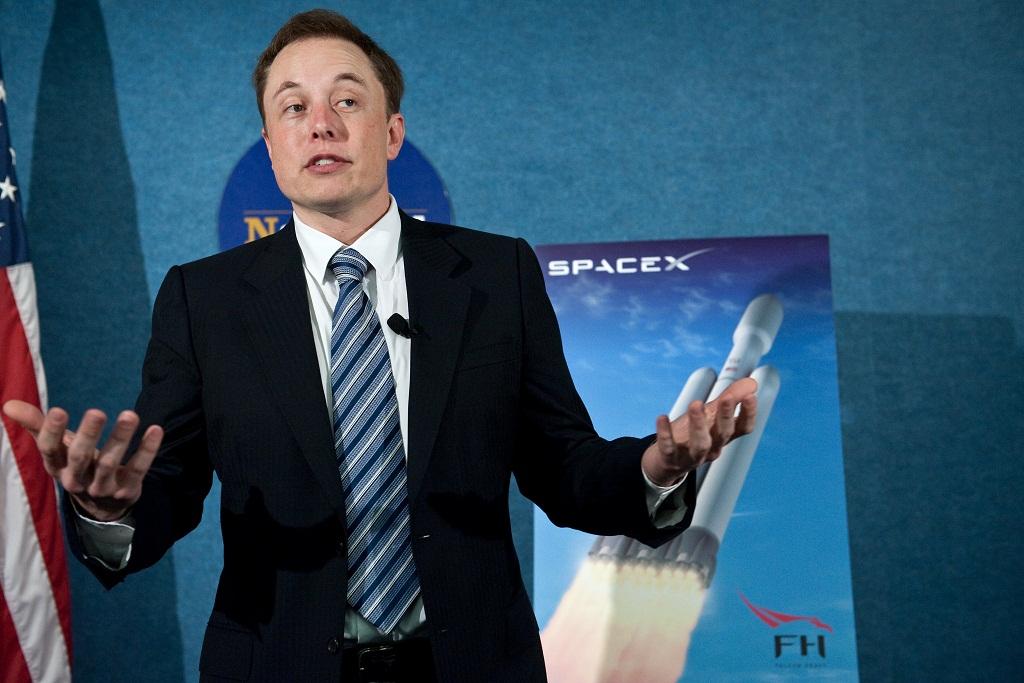Elon Musk: Life should be multi-planetary
SpaceX CEO Elon Musk unveils the Falcon Heavy rocket at the National Press Club in Washington,DC on April 5, 2011. Musk billed the Falcon Heavy the world’s most powerful rocket, which will have its first demonstration flight at the end of 2012.
The sky is proving to be anything but the limit for Elon Musk and his space transport company, Space Exploration Technologies (SpaceX).
The 40-year-old space tourism entrepeneur appeared Tuesday night on the Daily Show to discuss the upcoming test flight and docking of his company's unmanned space capsule, Dragon, to the International Space Station (ISS). If successful, the feat would be the first time a privately built space craft has docked with the ISS. But Musk sees this record as a mere stepping stone for his larger vision.
"The longterm goal of SpaceX is to develop the technology necessary to make life multi-planetary," Musk told host Jon Stewart during his Daily Show appearance. "So to enable a self-sustaining civilization on Mars."
Musk serves as CEO and CTO of SpaceX and is no stranger to making headlines. As co-founder of uber-successful ventures including PayPal, Tesla Motors and SolarCity, he built a multi-billion dollar empire that helped to fund his most expensive SpaceX initiatives. In December 2010, one such initiative landed SpaceX the title of first private company to launch and return a spacecraft from orbit.
"People often wonder how did you go from internet payments to rockets — a reasonable question," Musk told Stewart. "I thought about these things in the abstract in the college. I didn't think I'd actually be doing any of them — it just turned out that way."
Musk said he owed much of the success of SpaceX to NASA for their guidance and innovation throughout the years, revealing he had hired several former NASA employees in the wake of government de-funding of the shuttle program.
"I think the next logical step is to…create a forcing function for improving space transportation technology," Musk said. "And that will also ensure the continued existence of humanity and consiousness."
Dragon is scheduled to launch April 30.
The story you just read is accessible and free to all because thousands of listeners and readers contribute to our nonprofit newsroom. We go deep to bring you the human-centered international reporting that you know you can trust. To do this work and to do it well, we rely on the support of our listeners. If you appreciated our coverage this year, if there was a story that made you pause or a song that moved you, would you consider making a gift to sustain our work through 2024 and beyond?
